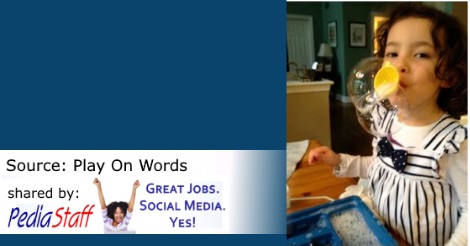Worth Repeating: Articulation Therapy Carryover Activities
by Sherry Artemenko, CCC-SLP

I have a number of boys, ages 5-8, currently on my caseload, who are working on improving their articulation. They have made great gains in learning to correctly produce their target sounds in words, sentences and conversation within our therapy sessions, but are having trouble making that leap to carryover.
I read with interest Pam Marshalla’s “Speech Therapy Answers and Advice” which I always find incredibly practical and helpful. She heard from a parent whose 5 year-old girl is right in the spot I described above–accomplished in her target sound(s) but not moving to the next step for carryover to produce her correct sounds in everyday activities. Pam makes an excellent point that carryover needs a plan just as each other stage of therapy does. I think we often feel like we are “finished” with therapy when we get a child to the carryover stage and he should just start using his wonderful new sound. Some kids actually do make that jump easily but I find it is more common for young children to need several activities to integrate their new production into everyday activities.
I agree with Pam that we never want to tell parents to “correct” their child all day. This goes for all kinds of speech-language therapy. I am sharing that piece of advice with parents often. Pam shares 3 activities from her book, Carryover Techniques in Articulation and Phonological Therapy, appropriate for encouraging carryover for a 5 year-old child:
“Free Talk
Have the child sit in a certain chair at home. Talk to him for 5-10 minutes about any subject that gets him to talk freely— e.g., what he would like to do for his next birthday or his preferences for his lunches at school. Or tell knock-knock jokes to one another, etc. Tell him that you will correct him while he is sitting in the chair but that you will NOT correct him any other time. Have a good time while he is in that chair. Make it a place of special fun and special attention. Tell him how much you love him when he in on it. DO NOT CORRECT HIM ANY OTHER TIME OF DAY. This is a basic Van Riper technique he called “Nucleus Situations.”
Key Words
A second excellent way to begin work on carryover at home is to use what we call “key words.” Chose one, two, or maybe three words you will correct. For example, if the child is working on “S” use the word “Please.” Key words are words that have your child’s target sound and that come up often in your home– please, yes, no, okay, maybe, pretty soon, mommy, daddy, upstairs, can I…, car, eat, drink, juice, breakfast, lunch, dinner, homework, chore, etc. Tell your child you will correct him on those words only. Let all other errors go uncorrected. After a week, add another few words, then more another week later, etc.
Word Tag
Try a game of “word tag.” Sit together on the couch for 5-10 minutes and strike up a general conversation about anything. Lightly and playfully slap the child’s hand or knee every time he says a word with his sound, and he will do the same for you. Make a game of it by crying out “I heard one!” when a tag is made. The idea is simply to make these words stand out. After a few minutes, change the game so that you only tap each other when a word is spoken correctly (or incorrectly). Do not correct him outside of the game unless he likes it and wants to. Once it is learned, the game can be played for a minute here-and-there throughout the week”
I also like to engage the classroom teacher in a similar way. Let the teacher know what sound or sounds your little client is trying to carry over and suggest a certain time during his day or activity when you will be listening for his /l/ or /s/ sound, giving him an encouraging word of praise or thumbs up. It may be when he reads a portion of his book to the teacher or shows her his work. Never correct but catch him using his sound correctly. I have found when a child is more aware of using his sound during his school day, carryover comes faster!
Featured Contributor: Sherry Y. Artemenko M.A., CCC_SLP
For more than 30 years, Sherry Artemenko has worked with children to improve their speech and language, serving as a speech language pathologist in both the public and private school systems and private practice.
Sherry founded the PAL Award (Play Advances Language) to recognize outstanding children’s toys, games and books that can build language. Her PAL Award reviews give parents, educators, manufacturers and retailers specific ways to use award winning products to enhance language. Visit Sherry’s website to view her winners.
Thanks to Sherry and Play on Words PlayOnWords.com for sharing her article with us.
PediaStaff is Hiring!
All JobsPediaStaff hires pediatric and school-based professionals nationwide for contract assignments of 2 to 12 months. We also help clinics, hospitals, schools, and home health agencies to find and hire these professionals directly. We work with Speech-Language Pathologists, Occupational and Physical Therapists, School Psychologists, and others in pediatric therapy and education.
